Missouri School of Journalism students showcase research at conferences around the country
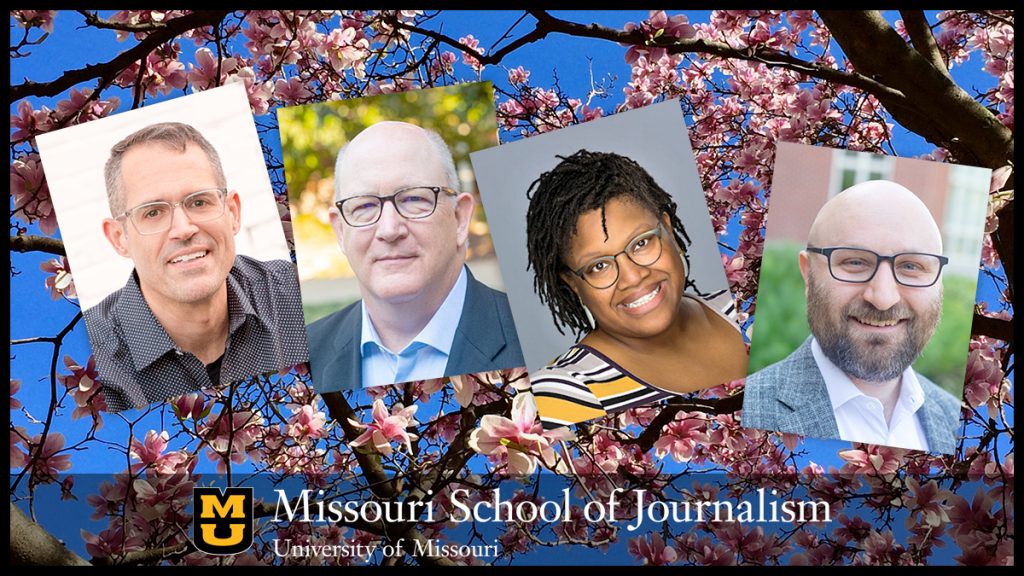
COLUMBIA, Mo. (March 7, 2024) — Students at the Missouri School of Journalism are traveling to research conferences this week, where they will present graduate and undergraduate work on a variety of topics related to journalism and strategic communication — some representing undergraduates’ first forays into academic research.
“Our students’ presence in these conferences, at all academic levels and representing both journalism and strategic communication, demonstrate the remarkable research opportunities available to students at the School of Journalism,” said David Kurpius, dean of the School. “I can’t wait to see what’s next for this accomplished group of students.”
At the AEJMC Southeast Colloquium and the International Public Relations Research Conference, both running from March 7-9, students and faculty alike will present important, timely work and receive feedback from experts.
AEJMC Southeast Colloquium
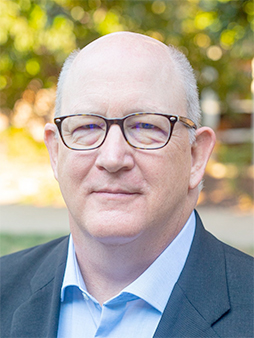
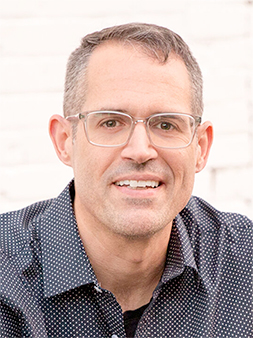
Associate Professors Jared Schroeder and Keith Greenwood will be taking nine students by bus to Lexington, Kentucky, for the Southeast Colloquium, where they will present work largely related to communication law, given that most of the papers were submitted a part of Schroeder’s graduate-level communication law seminar.
The conference, hosted by the University of Kentucky, represents a strong showing for the School of Journalism and an important opportunity for the students to showcase their work and gather feedback. In fact, one of the conference’s sessions on law and policy will be utterly dominated by the School, with Schroeder’s students presenting each of the four papers in the session. The moderator Michael T. Martinez, MA ’80, and additional speaker Daxton Stewart, PhD ’08, also earned degrees from the School.
For Schroeder, however, this particular conference has additional significance.
“This was my first conference as a master’s student in 2005,” Schroeder said, noting that the event’s smaller, more focused environment — in comparison to the national AEJMC conference — left him with an appreciation for the opportunity to forge meaningful connections with the attendees. “I want our students to meet the people who go to this conference, because they are more likely to be on the hiring panels and search committees that apply to their interest areas.”
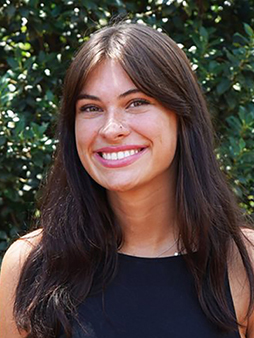
The experience will mean different things to different students. Ivy Reed, a first-year undergraduate and Stamps Scholar, will be presenting her first-ever academic research paper. The paper broadens the current understanding of Jane Addams, a social reformer in the late 19th and early 20th centuries, to encompass her thoughts on communication theory and freedom of speech.
“Addams actually wrote a lot about how information and experience is exchanged in the public forum, and how ideas can spread in community spaces,” Reed said. “The paper aims to integrate those ideas into the contemporary study first amendment theory and, specifically, online community building in the social media era.”
The work required a lot of learning from Reed — not just on the details of Addams’ ideas, but on the fundamentals of the kind of technical, analytical writing that communication law research requires. Not only was this her first academic paper, but she is the paper’s sole author. Paired with a conference acceptance, it’s a rare trifecta — one that Schroeder said indicates how adeptly Reed took to the challenge.
“We would meet on Fridays, and I would wake up Saturday morning thinking I didn’t give her enough direction,” Schroeder said. “Then she would email me her work, and it would be perfect. I thought, ‘how are you so good?’”
Reed expects to receive helpful feedback in Kentucky, but an important aspect of having her work accepted to the conference has been the feedback she has already received.
“I really like that you have an opportunity to read feedback and then revise your paper — you submit your revised paper before the conference,” Reed said. “It’s a good model for making your paper the best it can be.”
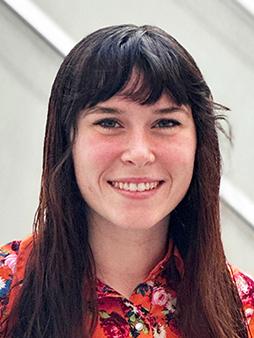
And speaking of the best, Skye Lucas, a master’s student at the School of Journalism and a student innovation fellow at the Reynolds Journalism Institute, earned the Top Student Paper designation in the conference’s law and policy division. She has more academic experience than Reed but said she will relish the opportunity to present her work alongside experts such as Schroeder.
Lucas built her paper around an issue that hits close to home for her on a number of levels. Her passion for reporting, combined with the focus of Schroeder’ course, led her to the issue of SLAPP lawsuits (Strategic Lawsuits Against Public Participation), which attempt to silence or discourage news coverage with frivolous, costly and time-consuming legal proceedings.
Having spent time in Aspen, Colorado, Lucas saw the impact of a SLAPP lawsuit up close when the Aspen Times was sued by a billionaire real estate developer, which resulted in the resignation of the paper’s editor-in-chief and the firing of his replacement. She has also lived in Montana, working for weekly newspaper the Flathead Beacon, and given that the state lacks anti-SLAPP legislation, she fears the damage that such a lawsuit could create.
“It’s not about winning [for SLAPP filers],” Lucas said. “It’s about intimidating and discouraging coverage of a person or a topic. Just filing the lawsuit is very stressful for a news organization, so sometimes that is all it takes to scare and silence a newsroom.”
Lucas examined 10 cases from all over the country, both in states with and without anti-SLAPP statutes. Her goal was to develop a clearer understanding of what constitutes a SLAPP lawsuit, as the definition can vary across states and from case to case. Among her findings: while many SLAPP suits involve exorbitant requests for damages, others seek to use the legal process for intimidation without resorting to excess damages, highlighting the need for recognition of a broader range of SLAPP tactics.
“There is a lot of awareness of SLAPPs, but we really don’t have a definitive, concrete understanding of what they are, because there is no federal anti-SLAPP legislation,” Lucas added.
As for the faculty, Greenwood will serve as a moderator, while Schroeder will present his own paper exploring whether the first amendment’s press clause applies to AI communicators. In total, students will present 10 papers at the conference, with seven coming from doctoral students, two from master’s students and one from Reed.
International Public Relations Research Conference
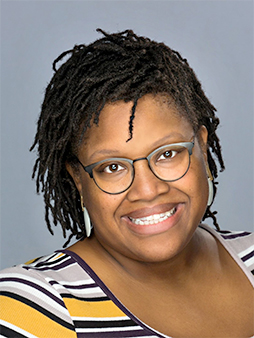
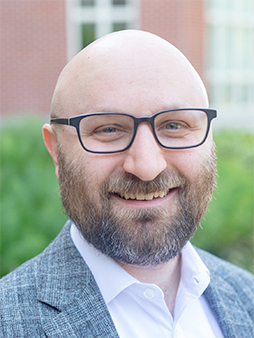
Like Schroeder, Assistant Professor Luke Capizzo has a certain fondness for the conference he will attend with four strategic communication students. The International Public Relations Research Conference (IPRRC) in Orlando, Florida, happens to be the conference where he — alongside Assistant Professor Monique Luisi — first presented a recently published paper about the communication strategies businesses use to balance their financial, social and environmental responsibilities, so Capizzo is well aware of the conference’s value in helping further develop research work.
Whether in Kentucky or Orlando, the focus is on helping students gathering valuable perspectives on their work in an environment that allows for more personalized attention.
“IPRRC is very interactive — you present your work to probably 100 different people and get individual comments from most of them,” Capizzo said. “It’s a great way to meet and connect with folks on a level that is easier than a lot of the big conferences. You have time to see what is actually happening in the weeds of these studies and ask what can be done to make them better.”
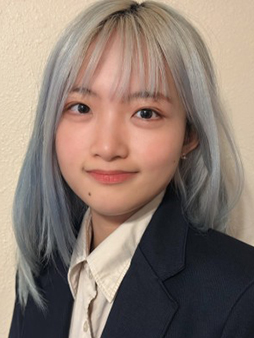
One of Capizzo’s undergraduate students, junior Jade Bao, is the third author on a paper that will be presented at the conference; it traces the evolution of ethics in “information subsidies,” or the means by which organizations seek news coverage through press releases and other efforts. Bao co-authored the paper with Capizzo and Mimi Perreault, PhD ’16, after reaching out to Capizzo to see if he had any opportunities for undergraduate research.
As with Reed, the paper was Bao’s first foray into formal academic research, a pursuit inspired by her father, an English professor at a university in her hometown of Shenzhen, China.
“I was really lucky that I decided to reach out to Dr. Capizzo,” Bao said. “As a beginner, I had a lot of ‘stupid questions,’ and he answered them one by one really patiently.”
Capizzo and Bao will be joined by master’s student Lily Williams and doctoral students Terry Nzau and Lea-Ann Germinder, who will present a paper on crisis communication on X (Twitter) in Kenya based on their work in Capizzo’s graduate-level crisis communication seminar.
“There is a disproportionate amount of scholarship about dealing with the immediate aftermath of a crisis, and 95% of the job as a PR practitioner is not that,” Capizzo said. “Often, the most beneficial work is helping people avoid crises by planning better and watching the issues that matter to people in your community. “This is about how we bridge the work from crises to what we’re doing the other 95% of the time.”
Capizzo will also present two additional papers, including one co-authored with alumna Anli Xiao, MA ’14, and Fritz Cropp, associate dean for global programs at the School of Journalism. This paper applies a global perspective to corporate social advocacy, the practice of a corporation taking a public stance on a social issue.
It’s only the beginning of the year’s academic conferences in journalism and strategic communication. Follow journalism.missouri.edu for more news.
Updated: March 7, 2024